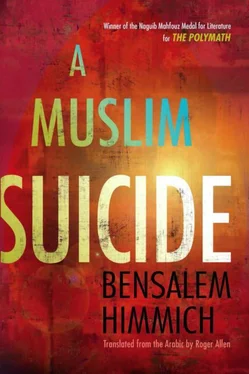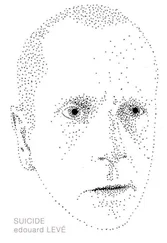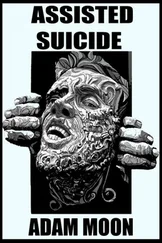"If I were you, Ibn Sab'in," they said, "I wouldn't stay too long in Bijaya. The best thing by far would be for you to speed on your way to the Hijaz."
The nasty, threatening tone that they both used and the fact that the whole thing happened so suddenly prevented me from responding or even trying to catch up with them after they had left. I just sat there for a while thinking the whole thing over and trying to link it to everything that had happened to me so far. Once I had made up my mind that there was indeed a link, I left the mosque with my head bowed and headed for the place where I was staying. Once there, I diverted myself by attending to my horse, gave him some more fodder and water, and fondled his head and mane, whispering words of comfort and reassurance as I did so.
Just as I was in the process of using this as a way of convincing myself to take things as they come, there was Al-Shushtari himself standing in front of me with a radiant smile. Kissing my shoulder, he gave me a warm embrace and then apologized for not waking me at dawn because I was so deeply asleep.
I told myself that now was the right time to tell this ascetic holy man about certain things and to ask his counsel about others. I invited him to come inside and sit down with me. Once he had watered his garden and tended to his various animals, he did so. Between us he placed something to drink and some pieces of bread, vegetables, and cheeses.
"So, Abu al-Hasan," I said as I peeled a cucumber, "you're good at growing things as well! I watched your work with the group of poor folk at noon today by the Port Gate. By God, the whole thing thrilled me!"
"My master, 'Abd al-Haqq," he replied after swallowing a mouthful, "every Monday I accept the invitation of a number of madmen from the asylum to do a tour of the town and sing with them. The whole thing ends with Sufi rituals and a ceremony in their residence. This practice seems to provide them some comfort and relief. Every Saturday I do exactly the same thing with prisoners; I have to take responsibility for them when I do so. With both groups I am trying to insert a small grain of charity into their lives and help them overcome their trials and tribulations. The chanting helps enormously in that particular regard. And success comes only through God!"
I extolled his actions in a spirit of genuine admiration and assured him that he fully deserved the title of "Pivot and Imam of the Ascetics." However, he hastened to remind me that whatever aspects of asceticism and mysticism he utilized had come from me, just the way a pupil does with his master.
At this point all I could do was to remove the money-belt from my waist and put it down in front of him.
"I'm not the way you think," I confessed. "Here I am carrying purses of gold coins! Will you relieve me of them and distribute them for charitable purposes? Then I can feel less guilty and relax a little."
He did not look the least bit surprised or taken aback. "This is the sentence's predicate, master," he responded, eyes lowered, "but what is the subject?"
I started telling my questioner about the purses' history and how they came to be.
"Now that the circumstances are clear," he shouted in delight, once the tale had been told, "there's no cause for surprise. This money of yours is fully earned; it is your legitimate property. Get rid of as much of it as you can for charitable purposes, but keep the rest for whatever the future holds. There can be no harm in that!"
My mention of Frederic, king of the Christians, and his gifts to me provided an opening for me to tell my companion about aspects of my life in Murcia. I chose to emphasize the more ribald aspects of my earlier years, the hope being that his sense of owing me so much as his master might be adjusted and diminished somewhat. That way, he would learn how my career had developed gradually over time, rather than envisioning me through his abundant love and good works. Instead he in turn, ascetic holy man that he had become, started telling me-and with no apparent embarrassment-about the reckless existence he had lived in the region of Guadix and in particular the village of Shushtar. He explained it all in terms of his having grown up in a wealthy and very influential family, something that became clear in the content of his classical poetry and colloquial verse.
This remarkable man continued to amaze me. "Even the daughter of the grape, Abu al-Hasan?" I asked with as much reticence as possible.
"Oh yes, master," he replied raucously, "in goblets and glasses! How much of it did I quaff in monasteries and taverns! And when it comes to stories about the evenings I spent with poll-tax girls, don't even ask. Such things are part of my secret life; only the Merciful Forgiver knows about them!"
This remarkable man had just reminded me of the times when I was young and reckless and used to consort with the prostitutes of Murcia, who were called "poll-tax women" because, as alien-residents, they were obliged to pay the poll tax to the authorities. Feeling bashful and not a little ashamed of the whole thing, I decided not to tell my companion about it. I also bore in mind the fact that his foreswearing of such activities had come about in Meknes and thanks to me because it was there that one of my students had provided him with copies of some of my epistles.
How amazing is the turn of events in this world of ours!
This worthy practitioner of good deeds was older than me. If I had gotten to know him earlier, I would certainly have been the one to ask him to forgive me for past indiscretions. He was the real ascetic, rather than me; he was the one doing good deeds and undertaking genuinely praiseworthy initiatives, someone about whom I could easily say exactly what Abu al-Walid ibn Rushd* [Averroes] had to say about Abu al-'Abbas from Sabta: "This man sees clearly that our life on earth is gauged by acts of generosity."
I decided to take advantage of the opportunity afforded by my friendly relationship with my companion to ask his opinion about my lost manuscript and my failure to get it back. What he had to tell me gave me some reassurance, but at the same time completely baffled me:
"My dear colleague," he said, "it may well be that you wrote it as part of a dream and lost it in the same medium. Aren't you the very one who, in his Epistle of the Poor, has this to say: `You should know that the miserable person is one whose youth was spent in pleasure; and yet, after focusing all his energies on it, he discovers that its only legacy is regret. On the other hand, the happy man is someone who realizes that the days of one's life are merely a dream, whereas it is death that involves being awake. And as part of the reckoning comes the justification of his inspirations."'
Yes indeed, I had written that or something very like it. But was that enough to remove all doubt and despair? But, rather than pursue the matter further, I decided to turn the subject to my life in Sabta. I told Abu al-Hasan about the city's most important groups and spoke briefly about my wife and my love for her. I told him about the people in general and personal acquaintances whom I had encountered in the city and on Jabal Musa. My companion was listening carefully to my description. Once in a while I had to provide a response to a specific question that he asked about a topic or person that had aroused his interest or curiosity.
When I had finished, he astonished me by making it clear that he had already perused some of the chapters in Escape of the Gnostic. I got the clear impression that he was the kind of devout person who manages to get by with a minimum of sleep. I decided not to overburden him by delving into some of the book's more problematic aspects: that once in a while the discourse would become diffuse and opaque, while certain sections might seem ambiguous and complicated. However, he anticipated me by giving high praise to the part of the chapter "Knowledge of the Reality of Things" that he had interpreted and understood for himself; also the section on the sciences. He went on to say that, where he was not able to understand, the only fault was in his own weak mental equipment.
Читать дальше












